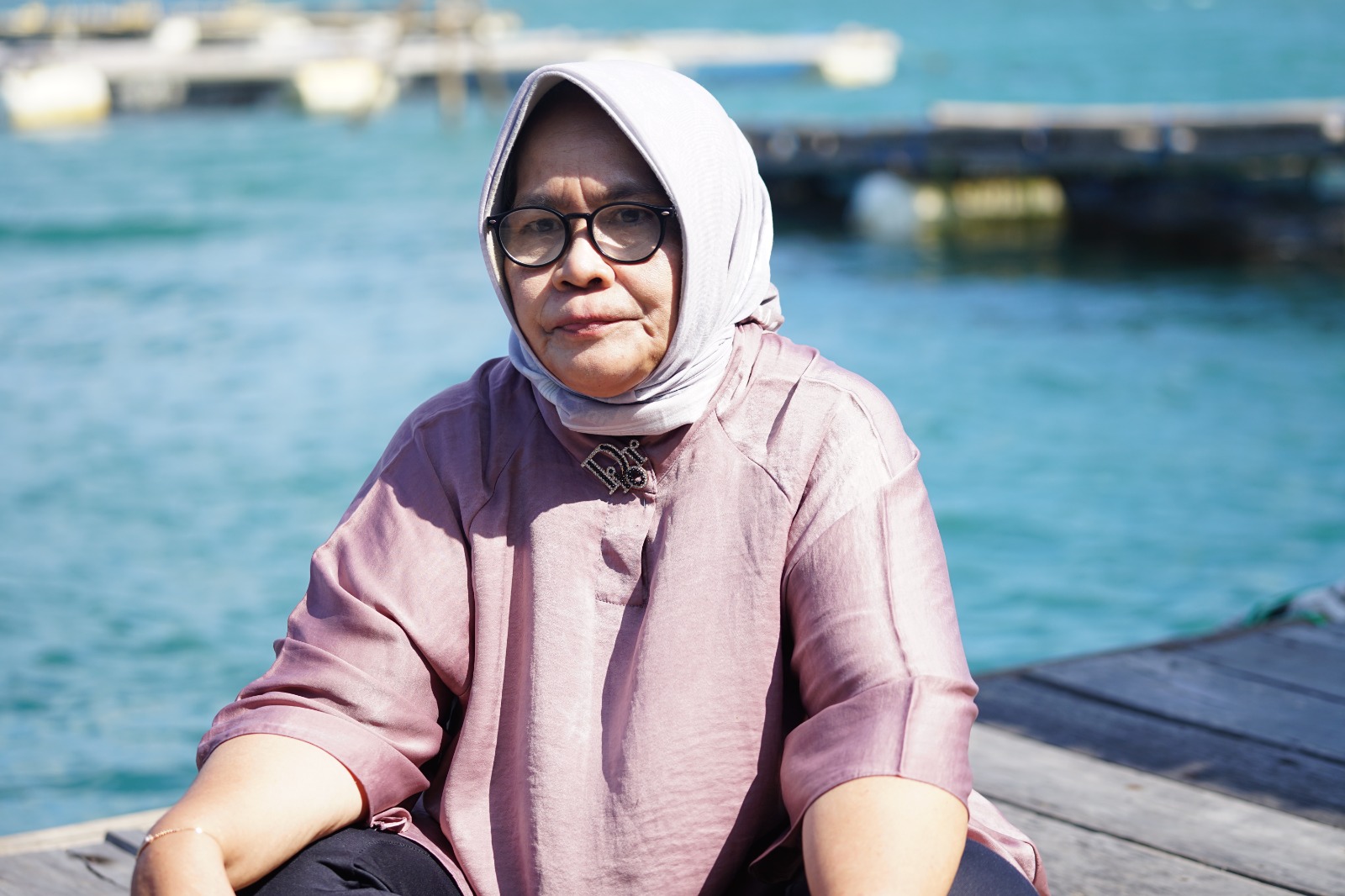Prof. Nana, Unram’s Inspirational Woman in Coastal Women Empowerment and Gender Equality

Mataram, University of Mataram – As Vice Rector for Academic Affairs at the University of Mataram (Unram), Prof. Dr. Sitti Hilyana, who is familiarly called Prof. Nana, has played a major role in empowering coastal women in NTB, especially through various sustainable research and development programs that are in line with the Sustainable Development Goals (SDGs) related to gender equality. Prof. Nana has been active since 2003 in driving programs that strengthen the role of women in various sectors, from education to the local economy.
Prof. Nana started her career in several important positions before becoming Vice Rector, such as Head of Regional Mangrove Management appointed directly by Tito Karnavian and the Governor of NTB Province, and as President of the Indonesia Marine and Fisheries Socio-Economic Research Network (IMFISERN). In addition, she has also served as Coordinator of the Learning Center Approach to Fisheries Management; Secretary General of Mitra Bahari established by the Ministry of Maritime Affairs and Fisheries; Head of the Indonesian Association of Coastal Managers; and as Coordinator of the Economic Empowerment of Fishermen Communities in the Indonesian Fishermen Association.
According to Prof. Nana, almost all of her fields are gender-oriented, where women are always involved in various aspects of development. “At IMFISERN, for example, we invite coastal women to take part in sustainable fisheries governance. In the Coastal Management Expert Association, the role of gender is an important pillar to educate the children of fishing communities to protect natural resources and continue their education,” she said when interviewed by the Unram Public Relations Team on Friday (8/11).
Prof. Nana is also active in mobilizing mothers in coastal areas in processing fishery products. Through Association of Indonesian Fishermen, she helps them increase the added value of their products so that they have a stronger bargaining position in the household. In the mangrove program, for example, she invites women to utilize products under mangrove stands such as chips from crabs and squid, to brownies and chips from mangrove fruit, which are expected to be able to increase family income when husbands are unable to go to the sea.
Not limited to the fisheries sector, Prof. Nana also mentors women around the forest area as part of the Dharma Wanita program, encouraging them to process various forest products into economically valuable products such as herbal drinks and rengginang. She facilitates them in accessing training and facilities to expand their business capacity.
Prof. Nana hopes more women will gain access to leadership positions, especially in academia. “Among universities, I hope more women sit at the leadership level, such as deans or heads of institutions. I believe the current Unram Rector is highly supportive of gender equality and will provide more space for women,” she said.
In addition, Prof. Nana emphasized the importance of women to dare to take a role in the public and political spheres, starting from the village level to the national level. With the presence of women in policy-making, she believes that a more detailed and empathetic perspective will be reflected in policies that are more in line with the needs of the community.
She also highlighted the challenges women face in access to technology and industry. “Often the tools provided by the government do not fit the needs of the community due to a lack of assessment, such as tools with too large capacity or insufficient electricity. The tools end up being stalled,” she said. She hopes that the government can be more sensitive and harmonize the needs of the community with the assistance provided.
In Prof. Nana’s view, the enthusiasm of coastal women and UMKM is extremely high, and only requires the right support and access so that they can develop. As an inspiring figure who has dedicated more than two decades to women’s empowerment, Prof. Nana hopes that her contribution can be an example for other women to continue to be empowered in all fields.
